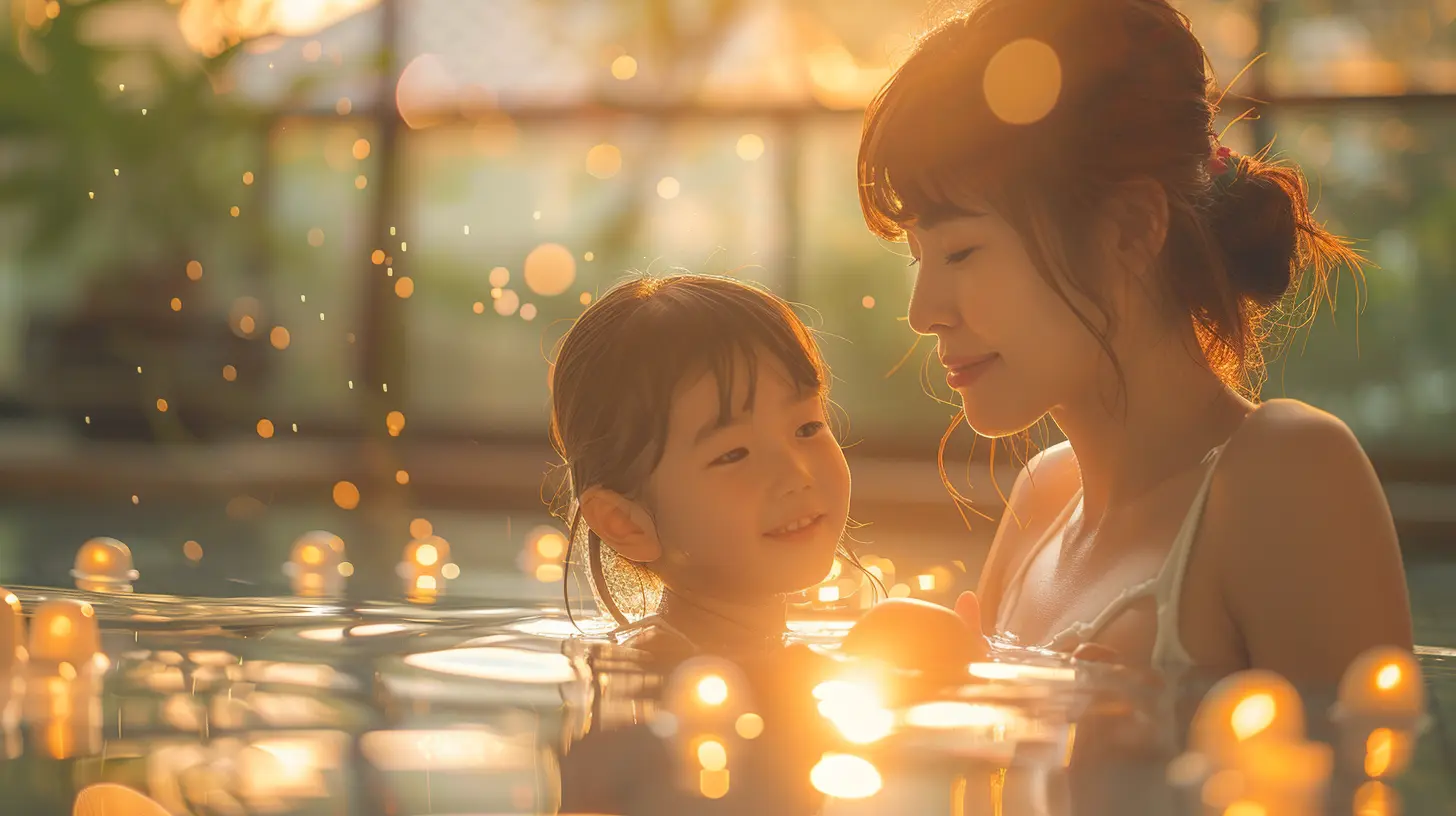Why Self-Care is Essential for Long-Term Parenting Success
12 October 2025
Let’s be honest—parenting is not for the faint of heart. It’s beautiful, messy, chaotic, and deeply rewarding. But between school drop-offs, dirty laundry piles, tantrums at the worst times, and the never-ending to-do list, one thing often gets pushed to the bottom: you.
If you're a parent, chances are you've heard the phrase "you can't pour from an empty cup." It’s become a bit cliché, but it’s stuck around for a reason—because it’s painfully true.
In this post, we're going to break down why self-care isn’t just a luxury or a selfish indulgence but a non-negotiable part of being a great parent. If you want to thrive in the long run—and not just survive the toddler years or ride out the teen storms—self-care is your secret weapon.

What Is Self-Care… Really?
Before we dive in, let’s clear something up. Self-care doesn’t just mean spa days, yoga retreats, or bubble baths (although sign me up for all three!). It's about tending to your mental, emotional, physical, and even spiritual needs, so you can show up as the best version of yourself.Think of it like maintaining a car. You wouldn’t keep driving a car without oil changes, gas, or tire rotations, right? Eventually, it'd break down. Same thing goes for people.

Why Parents Often Skip Self-Care
Now, if you're thinking, "Yeah, yeah, I know I should take care of myself, but I literally don't have time," you’re not alone. Most parents feel the same way.Here are a few reasons why we ditch our own needs:
- Guilt. It feels "wrong" to focus on ourselves when our kids rely on us for everything.
- Time constraints. Between work, house chores, and parenting duties, where’s the spare hour?
- Cultural pressure. Society often glorifies the self-sacrificing parent who gives 110% at all times.
- Misunderstanding of what self-care really is.
But here's the thing: when you burn out, everyone suffers—your kids, your partner, your friends, and especially you. So instead of seeing self-care as a luxury, it’s time to see it for what it truly is: sustainable parenting.
The Link Between Self-Care and Parental Mental Health
Think about the last time you were running on empty—maybe you hadn't slept well, hadn’t had five minutes to yourself, and your brain felt like mush. Now imagine dealing with a toddler meltdown or a defiant teenager in that state. Yeah, not ideal.Self-care directly impacts your mental health. When you regularly prioritize your well-being, you’re more patient, more present, and better equipped to manage the emotional rollercoaster of raising kids.
How Self-Care Helps Regulate Your Emotions
Let’s face it, kids mirror our energy. If you’re constantly stressed, snappy, or anxious, it’ll trickle down into their behavior too. Taking care of yourself helps you manage your emotions and respond thoughtfully instead of reacting impulsively.Even something as simple as a 10-minute deep breathing session or a short walk can help reset your nervous system and reduce parental stress.
Say Goodbye to Parent Burnout
Parent burnout is real, and it hits hard. It's that overwhelming sense of being drained, cynical, and emotionally exhausted from raising your kids. It often leads to feelings of resentment, which no parent wants to admit but many secretly feel.Regular self-care acts like a shield against burnout. It's your way of saying, "My needs matter too," which is crucial for staying in this parenting game for the long haul.
The Ripple Effect of Self-Care on Your Kids
Here’s something powerful: your kids are always watching you. They learn more from your actions than your words. When you make time for yourself, you model healthy habits and emotional intelligence.Kids Learn Boundaries from You
If you're always saying “yes” to everyone else and “no” to yourself, your kids notice. But when they see you setting healthy boundaries—like taking a break when you're overwhelmed or saying no to overcommitting—they learn to do the same.Boundaries aren’t walls. They’re fences with gates. And kids need to learn how to build those, too.
You Can't Teach What You Don't Practice
Want your child to grow up with self-confidence, resilience, and balance? Then show them what that looks like. Taking care of yourself demonstrates self-respect, and that becomes the blueprint for how your kids treat themselves and others.How Self-Care Fuels Your Parenting Toolbox
When parents are well-rested, emotionally supported, and physically healthy, they have more tools in their parenting toolbox. Let’s look at how:Better Decision Making
When you're not drowning in stress, you think more clearly. That means fewer impulsive decisions and more thoughtful parenting.Increased Patience
You’re less likely to yell or overreact when your tank isn’t empty. Patience isn’t just a virtue—it’s a skill. And it gets stronger the more you take care of yourself.Stronger Relationships
Self-care can help you reconnect with your partner, friends, and even yourself. And let’s be honest: when your relationships are solid, you feel more supported in your parenting journey.Simple Ways to Build Self-Care Into Your Life (That Don’t Take Hours)
I get it—when you’re parenting, time feels like a luxury you don’t have. But self-care doesn’t have to take hours or even cost a dime. Here are a few real-life, doable ways to refill your tank:1. Give Yourself Permission
Start here. You deserve care and rest, not because you’ve “earned” it, but because you’re human. Drop the guilt. You matter.2. Create Micro-Moments of Joy
Self-care doesn’t need a vacation itinerary. It can be:- Sipping coffee alone before the kids wake up
- Listening to your favorite song in the car (loudly!)
- Five minutes of journaling before bed
- Texting a friend just to say hi
Small moments add up.
3. Move Your Body
Exercise boosts mood, lowers stress, and gives you energy. You don’t need an hour at the gym—try a 15-minute YouTube workout or a walk around the block between Zoom calls.4. Sleep—is—Everything
If you’re sleep-deprived, you’re not functioning. Sleep is foundational. Prioritize it like you do for your kids.5. Ask for Help
This one’s big. The best parents aren’t the ones who do it all alone; they’re the ones who know when to say, “I need some help.” Call in reinforcements. You don’t have to juggle everything by yourself.The Long-Term Payoff of Prioritizing You
Think of self-care like investing in a 401(k) for your emotional and physical well-being. A little now pays off huge later.You Stay in the Game Longer
Parenting doesn’t stop when they leave for college. You want to be the parent who’s still thriving—not just surviving—years down the road.Your Kids Get the Best of You
Not the leftovers. Not the scraps of attention. The you who is full of life, energy, and joy.You Rediscover Yourself
Sometimes in parenting, we lose parts of ourselves—hobbies, passions, even our identities. Self-care helps you hold onto what makes you, well, you.Self-Care Isn’t Selfish—It’s Strategic
Let’s flip the script. Self-care isn’t about escaping your family; it’s about showing up for them in the best way possible. When you're healthy, rested, and emotionally balanced, parenting becomes more enjoyable—for you and your kids.So, the next time you think about skipping lunch, working through exhaustion, or brushing off your own needs, ask yourself: Would I want my child to treat themselves like this?
If the answer’s no, it’s time to treat yourself better, too.
Final Thoughts
You don’t need to overhaul your life overnight. Start small. Pick one thing. Carve out just ten minutes today for you. Parenting is a marathon, not a sprint. You can’t run the whole race if you never stop to hydrate.Self-care isn’t a side dish—it’s the main course when it comes to parenting success. By taking care of yourself, you’re not just doing your family a favor—you’re showing your kids what it means to live with balance, strength, and self-worth.
Because the truth is, one of the best gifts you can give your children is a happy, healthy, emotionally whole parent.
all images in this post were generated using AI tools
Category:
Self Care For ParentsAuthor:

Zelda Gill
Discussion
rate this article
1 comments
Juliana Montgomery
Self-care isn’t selfish; it’s necessary. Prioritizing your well-being improves your parenting skills and helps you remain present and positive for your children long-term.
October 19, 2025 at 3:40 PM

Zelda Gill
Thank you for highlighting this crucial point! Prioritizing self-care truly enhances our ability to be the best parents we can be.


